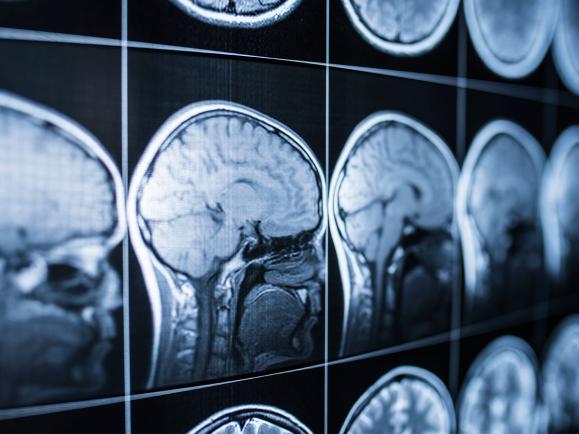
Emotional abuse can be more harmful than physical abuse. Wounds from physical abuse begin to heal over time. However, the feelings and memories from emotional abuse can have traumatic effects on a person's mindset. These effects can last a long time and take much longer to heal.
Being emotionally abused can be detrimental to many aspects of your mind and body. Emotional abuse has to do with your partner saying things that belittle and disrespect you on a regular basis. You may have done nothing wrong, and he or she continues to make you feel less than good enough. This behavior can cause a great amount of stress on you and how you feel about yourself.
Sometimes, unfortunately, victims of emotional abuse feel as though they cannot defend themselves and continue to endure the abuse. Physically speaking, it can do a number on your brain, which leads to a variety of psychological problems. This is what really happens to your brain when your partner emotionally abuses you:
Damage to the hippocampus
Emotional abuse can cause a great amount of stress on you. Your body reacts to stress by releasing the stress hormone, cortisol; this hormone can damage and reduce the function of the hippocampus. This area of the brain is associated with learning and memory. Once this is damaged, you can experience conditions such as:
-
Anxiety
-
Depression
-
Moodiness
- Post Traumatic Stress Disorder (PTSD)
Changes in somatosensory cortex
The somatosensory cortex is responsible for processing physical sensations as well as perception throughout the body. This means when we do not necessarily know how to store memories and learned processes, our brain will automatically do it for us. Victims of sexual abuse may commonly express "blocking out" the experiences because they do not want to re-live the experience. When emotionally abused, the somatosensory cortex is unable to send these signals to the brain for memory recollection. This is because you cannot process emotions and are less self-aware.
Lack of connection between right and left
The connection between the right and left brain are important in maintaining a good balance of emotional well-being. If you feel bullied by your partner, this can prevent your right side of your brain from connecting with your left side of your brain. Thus, this disconnect can lead to the following:
-
Anger
-
Anxiety
-
Depression
-
Hostility
-
Risk for drug abuse
If your partner is emotionally abusing you, he or she is causing your brain to decrease its ability to work at its optimal level. It's so occupied with protecting itself against the emotional overload of stress and feelings that it cannot perform well in its own capacity. Even after the experience is gone, it can leave your brain so weak that it can't function properly.
How you can recover
Not all hope is lost, though. Our bodies and cells have such a unique way of reproducing and rejuvenating themselves. This includes one of your most key organs: your brain. With the right therapy and support, our brains can recover from some of the most traumatic experiences. Emotional nourishment is important to help a brain that has sustained any emotional abuse. Some effective ways that you can help your brain rebuild its strength are through a variety of positive therapies such as:
-
Learning coping mechanisms
-
Exercise
-
Meditation
-
Time spent with family and friends
-
Separation from negativity and negative people
-
Self-care
Just because you are a victim of emotional abuse doesn't mean you cannot take your life back. You should never allow someone else to dictate who you are or who you should be. A relationship is about two people who love and respect one another. It also does not mean that you should end your relationship immediately.
If you really want to see the relationship work and know that your partner would be willing to listen and work on it, then there is still hope for the relationship. Seeking therapy and having open lines of communication can greatly benefit the relationship. Each situation will always be different, so evaluate yours carefully.
When dealing with stress, the brain is forced to send signals to particular areas to "fight" and defend you. But, when it's overloaded with stress, it can inadvertently send the wrong signals or none at all. No one deserves emotional abuse regardless of the length of any relationship. Emotional abuse can leave behind psychological scars that may never fully heal. As it affects the brain, you lose your ability to be more self-aware and react to stress-inducing situations.
If you are or know someone who is in an emotionally abusive relationship, seek help immediately. No one deserves to be treated that way. Every person deserves love and respect, all at the same time.

